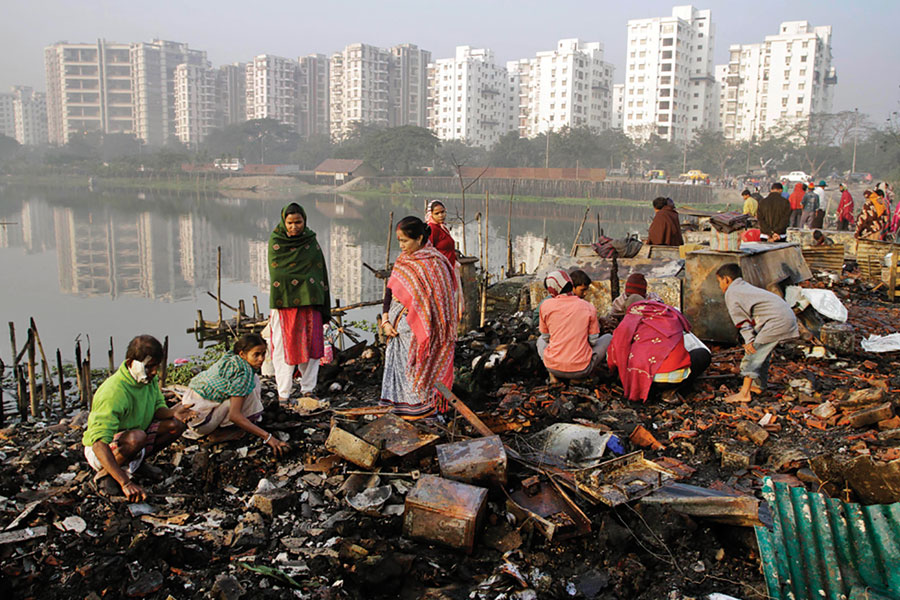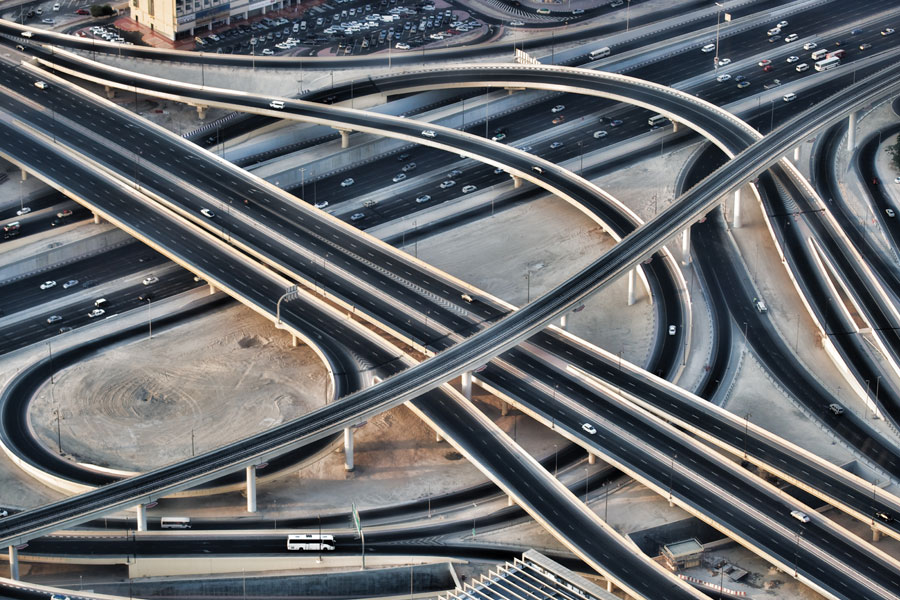Squinting through the smoke and haze of a Mumbai, India, garbage dump a few years ago, Toby McCartney could never have imagined that one day he’d be shaking hands with Sir Richard Branson, and Tyra Banks would be congratulating him for developing a system that could one day revolutionize our roads.
McCartney had just flown in from London, England, UK, to visit a charity he supported and was watching dozens of poor locals picking through discarded items from a landfill – before the waste was buried forever. Amazed by the entrepreneurial mindset he saw among the people harvesting other people’s junk, making purses and wallets from cartons and air-conditioning units from plastic bottles – he returned to the United Kingdom determined to think outside the (discarded) box on his next business venture.
His next idea wasn’t a new product, charity or recycling company, but how to solve a problem that plagued most of McCartney’s home county of Dumfriesshire in Scotland – potholes.
He sat down with two friends, a water pipe expert and an employee of the local council, and they tried to think of a solution. “Originally, I thought dumping waste plastic into the holes would do the job,” he says. “But I soon realized that the mix needed to be a little more complex than that.”
After a few more messy experiments, McCartney hit on a solution: Use molten, recycled plastic as a replacement for the bitumen commonly found in asphalt roads. It’s a solution that resulted in his company, MacRebur, win the startup category at Branson’s new Voom business awards in London in June, and rub shoulders with judges, who included Banks and Sara Blakely.
McCartney’s idea of using old plastic is one of those seemingly “easy” solutions that no one can believe hadn’t been thought of before. Many manufacturers are so conditioned to using the same ingredients that many continue unthinkingly, when a cheaper, better and more environmentally friendly solution may already exist.
Bitumen is the glue or binding agent that is mixed with aggregate particles to create the familiar, smooth black ribbons of road, which now stretch over an estimated 12.5 million miles in the United States, India, China, Brazil and Russia alone. “If bitumen is your Pritt Stick type of glue that you’d use for school projects, then my molten plastic would be the equivalent of superglue,” says McCartney. Not only is the mix environmentally friendly, but we can now look forward to super strong roads in the future, and less potholes. “We’re basically using rubbish to get a better road.” The plastic roads will be 60 percent stronger than current bitumen roads and reduce rutting(sunken tracks made by the passage of vehicles).
If bitumen is your Pritt Stick type of glue that you’d use for school projects, then my molten plastic would be the equivalent of superglue.
An added bonus is that McCartney’s roadmaking technique will use plastic that is unusable by consumer waste recyclers, not the plastic bottles and packaging that is commonly recycled. Food packaging must reincarnate in the food industry and industrial packaging must once again be used the industrial sector again. The low-grade, plastic waste that McCartney wants is completely unusable for anything, but is perfect for rolling out their new breed of road.

Seventy percent of all bitumen is used in the construction of roads, and while it has been an effective ingredient for sidewalks and roads since the 1830s, and used as a waterproofing agent since ancient times, there is one glaring problem – it’s made from fossil fuels. That may not have mattered too much 200 years ago, before humanity realized there was a finite supply, and that global warming would result in rising oceans and less fresh air to breath, but current generations have widely acknowledged that fossil fuels aren’t such a good idea anymore, and that the addiction needs to end.
MacRebur Roads was established by McCartney and his two friends, Nick Burnett and Gordon Reid – three young dads with six daughters between them, who decided they wanted to leave a better planet for their kids. McCartney remembers his six-year-old daughter at a school assembly one day when they were asked “what lives in our oceans?” “One little girl said, ‘turtles,’” recalls McCartney. “Another said ‘whales’ and yet another, ‘dolphins.’ My daughter put up her hand and said ‘plastic.’”

It was a shocking moment that made him wonder if there may indeed be more plastic in our oceans than marine life one day. “I don’t want my daughter to grow up in a world where plastic is more prevalent than whales,” continues McCartney. “I wanted to create a legacy for her future, that was part driven by eliminating the 100,000 plastic bags that we use every minute in the world – each used once and then dumped into landfills.” The company will eliminate one ton of carbon in our atmosphere, for every ton of bitumen that’s replaced with their plastic roads. When their daughters are breathing easy, in a carbon-free world one day, they might have their dads to thank. Beyond the obvious feel-good this may bring, McCartney wants to look back after five years of running MacRebur and see a measurable difference in the use of plastics and fossil-fuel. He feels that business has the power to create change, more-so than governments.
I wanted to create a legacy for her future, that was part driven by eliminating the 100,000 plastic bags that we use every minute in the world – each used once and then dumped into landfills.
“I’ve become very disillusioned with politicians,” says McCartney. “I wish more entrepreneurs would come forward to help them to think differently about social problems. I’ve taken one world problem: waste that no one else can use, and solved another world problem with it: longer-lasting, stronger and greener roads.
Plastic roads make huge financial sense too. The three founders watched as millions of tons of plastic waste that was destined for U.K. landfills were instead sent to China for incineration – as part of the government’s commitment to responsible disposal. “But now we’ve found a local use for it, that reduces the millions of pounds spent on road maintenance and pot hole repair,” exclaims McCartney. “This material is now an asset, not a liability anymore.”
“Who would have thought old rubbish can make our roads 60 percent cheaper?” he says.




































